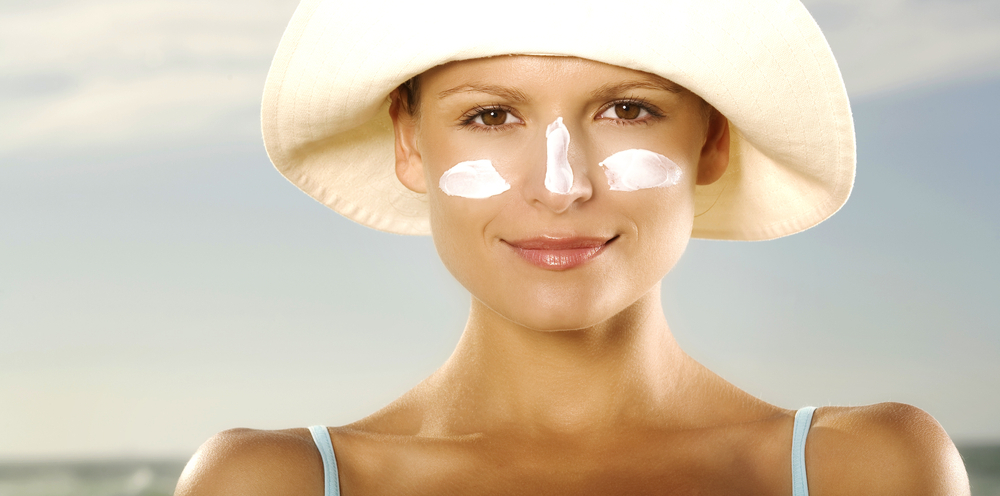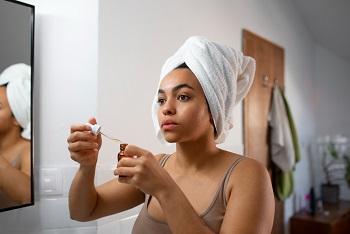The Importance of Sunscreen
The skin is the largest external organ of the human body. It is designed to protect itself from factors like harsh weather, pollutants, infection, and harmful sunrays through the help of melanin. Due to ever-increasing pollution and the effects of the sun ultraviolet rays on the skin, it is evident that the skin’s function in protecting against these external factors is minimal; and requires maximum protection to avoid the harmful effects of the sun.
The sun releases Ultra violets rays UVA, UVB, and UVC. These rays collectively cause damage to the skin at different levels. UVA ray works by damaging the surface of the skin which is often not noticeable, while UVB ray damages the skin beyond the outer layer (epidermis) which leads to sunburn. So, how can you protect your skin from harmful sun rays? Sunscreen!
Sunscreen is an essential skin care product applied on the skin to block harmful ultraviolet rays such as; UVA and UVB. Prolong or overexposure of the skin to sun rays causes sun burn, fine lines, crow feet, wrinkles, hyperpigmentations, and skin cancer. Introducing it to your regimen protects you from these negative effects, slows down aging, and improves the appearance of your skin. Sunscreen can be in form of gels, sprays, lotions, and cream.
Types of sunscreen
Sunscreen's primary function is to absorb or reflects the ultraviolet radiation from your skin. The two types of sunscreen are;
- Physical sunscreen; Physical sunscreen contains ingredients like titanium oxide and zinc oxide. Physical sunscreen acts as a sunblock by reflecting sun rays away from the skin. Typical characteristics of a physical sunscreen are leaving a white cast after applying on the skin.
- Chemical Sunscreen; Chemical sunscreen contains ingredients like avobenzone and oxybenzone. Chemical sunscreen absorbs the sun rays and then gets rid of them. Unlike physical sunscreen, chemical sunscreen glides smoothly on the skin without leaving a white cast.
How to choose a sunscreen
There are things to consider before choosing one. Choose a sunscreen based on your skin type, skin condition, active ingredients, and how comfortable you feel when you use it.
- Skin types; we have four major skin types; oily, dry, normal, and combination skin types. If you are trying out a sunscreen for the first time, read the label to confirm if you can use it. If you have an oily skin type, choose a non-comedogenic sunscreen.
- If you have a sensitive and oily skin type, you should consider physical sunscreen. Dry skin type should consider chemical sunscreen because it tends to be oily, if you have excess oily skin you can get lucky with chemical sunscreen. Sometimes, your skin decides the right sunscreen to use depending on how comfortable you feel after using it.
- Skin condition; you need to consider your skin condition when choosing a sunscreen, for example; if you have acne-prone skin you should consider physical sunscreen.
- Active Ingredients; moisturizing and hydrating sunscreen are good and suitable for all skin types. You should consider sunscreen with the following ingredients; hyaluronic acid, glycerin, ceramides, and UV protection.
When to use sunscreen
Sunscreen should be the last thing applied to the skin after using other skincare products. It should be applied in the morning after using a moisturizer. If it is a moisturizing sunscreen you can skip your daily moisturizer, and apply thirty minutes before leaving the house. Moisturizing sunscreen makes your skin healthy, even tone, plump and supple.
When you are choosing sunscreen, buy a broad spectrum (UVA and UVB protection) sunscreen with at least sun protection factor 30 (SPF 30). Sunscreen with SPF30 and above can prevent aging, and other effects caused by the sun rays.
Ensure you reapply sunscreen after staying out for long under the sun when you sweat profusely, and after swimming. To ensure full protection, apply about an ounce of sunscreen on areas like; face ears, neck, feet, and other exposed parts. Avoid going out when the sun is at its peak, sunscreen is not limited to sunny days; you should also apply sunscreen when it’s cloudy.
After applying sunscreen, make sure you wear clothes to cover exposed parts, wear wide sunglasses, and use a wide hat for maximum protection. You can speak with a dermatologist before using sunscreen.





Comments (0)